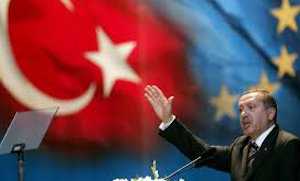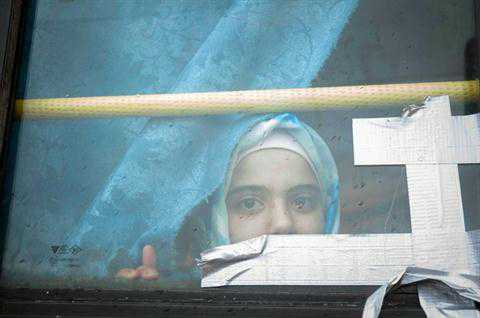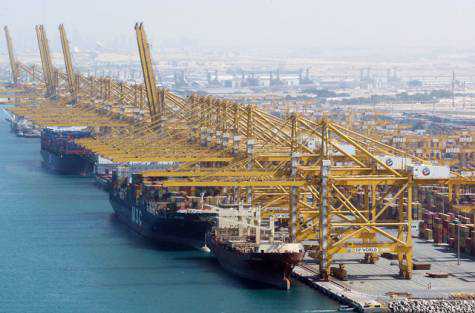By Pinhas Inbari
 Geopolitical forces in the Middle East demand the return of cooperation and amicable relations between Turkey and Israel. The two former allies face similar challenges like the growing threat of terrorist Iran, with its dangerous nuclear ambitions, and the possibility that Syria becomes a launching pad for Sunni al-Qaeda affiliated terror groups in the Middle East and Europe.
Geopolitical forces in the Middle East demand the return of cooperation and amicable relations between Turkey and Israel. The two former allies face similar challenges like the growing threat of terrorist Iran, with its dangerous nuclear ambitions, and the possibility that Syria becomes a launching pad for Sunni al-Qaeda affiliated terror groups in the Middle East and Europe.
Recently, encouraging reports in the media indicated that Israel would supply military technology to Turkey to fulfill old contracts that remained in limbo due to the tensions between the two countries. In addition, it has been reported that Haifa’s seaport would become the new gate for Turkish trade with Jordan, which used to run through Syria before the embattled country blocked all Turkish ground convoys. However, despite these encouraging signs, no breakthrough has been achieved via the U.S. mediated efforts to melt down the freezing relations between the countries in place since the Mavi Marmara episode. Last week, Prime Minister Erdoğan compared Zionism with fascism and characterized the Israeli national movement as a crime.
Islamist Turkey has clearly chosen the neo-Ottoman ethos over state interests. This not only complicates its relations with the Jewish state but also intensifies friction with Iran – its Islamic rival. The decision to privilege inter-Islamic quarrels and preserve its Islamist ideology has caused Turkey to endorse the al-Qaeda affiliated Nusra group so as to turn it into a tool against the declining Syrian regime and Hezbollah in Lebanon.
In order to understand the carnivorous nature of the Nusra group, one has to review its origins. The group began as a violent Jordanian gang that operated in Iraq under the command of the notorious Abu Musab al-Zarqawi. Its nucleus in Syria is not composed of native Syrians but of al-Qaeda operatives from across the region helmed by a Jordanian contingent.
In its Turkish incarnation, the Nusra group has de facto become the military wing of the Muslim Brotherhood. Its headquarters are located in Istanbul, commanded by a veteran Syrian Muslim Brotherhood soldier Faruq Taifur. However, Turkey should find little solace in the fact that Nusra is headed by a Muslim Brotherhood rather than an al-Qaeda operative on its soil. It is likely that al-Qaeda is already eyeing Turkey for possible terrorist operations regardless of Taifur’s affiliation.
With the Nusra forces fighting Hezbollah in both Syria and Lebanon, Turkey finds itself in the midst of a proxy war with Iran. A quick glance at the regional map tells us that the parties are struggling over control of Kurdish Syria and Alawistan. To date, the Nusra forces have refrained from attacking the Alawites so as to avoid unifying the Kurds with the Alawites, who have so far stayed loyal to President Assad and the regime in Tehran. The unification might create a ‘Shiite Crescent’ spread over Iran, Iraqi Kurdistan, Syrian Kurdistan and Alawistan, and Tripoli, touching upon the areas controlled by Hezbollah.
Turkey and Iran are engaged in a regional race to establish and control this crescent. While Turkey is negotiating a deal with the captive Kurdistan Workers Party (PKK) leader Abdullah Öcalan and his Syrian allies in the Democratic Union Party (PYD), Iran is busily supporting the other side and may use Hezbollah to stage terrorist operations on Turkish soil.
Turkey would do well to preserve its glorious Muslim cultural heritage. In order to do so, it must abandon the Muslim Brotherhood’s ethos and disengage from the Middle Eastern morass by normalizing relations with Israel and thereby identifying itself once more with the West.
via World Jewish Congress – WJC ANALYSIS – Turkey riding on the back of the tiger.




